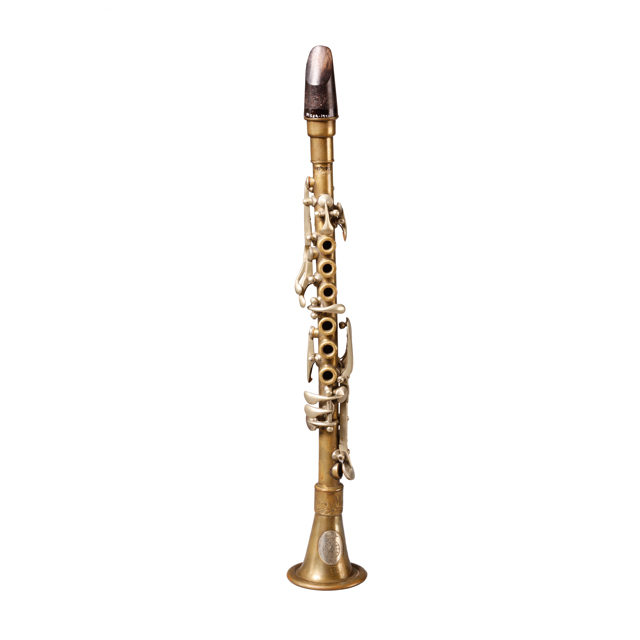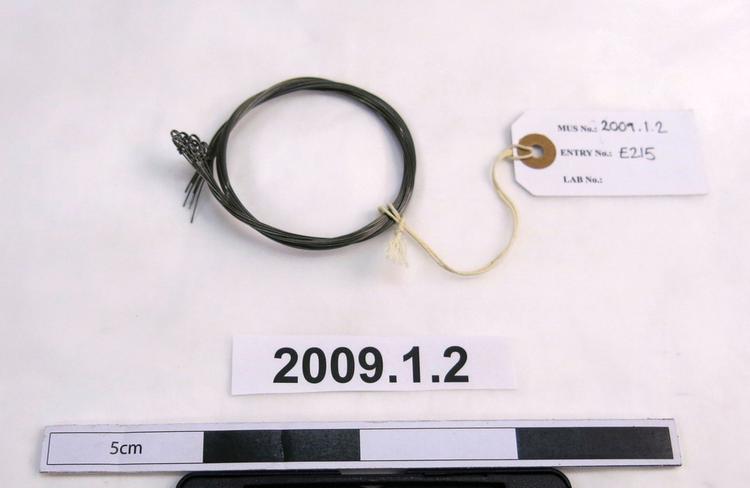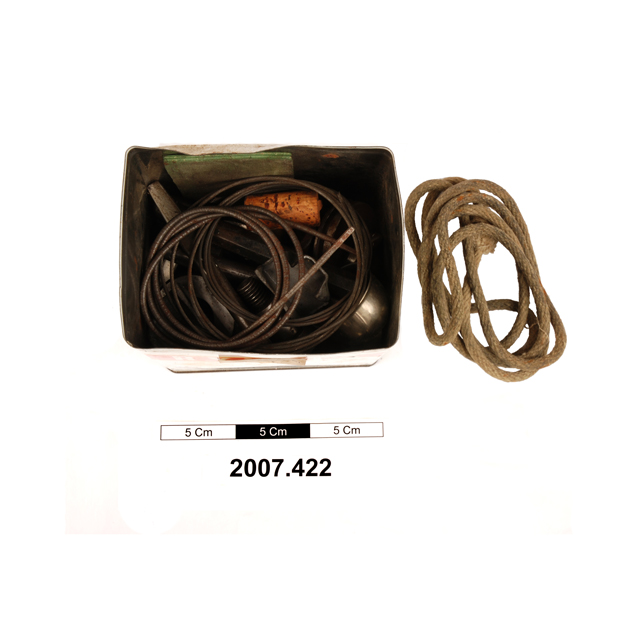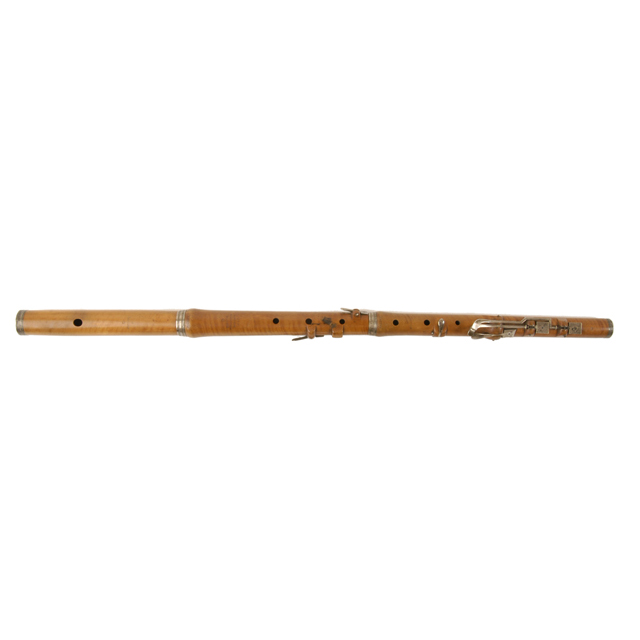
Eleven-keyed clarinet in high A-flat.
Clarinet. Nominal pitch: A-flat. Brass body and ferrules, German silver keywork, wooden mouthpiece. Four pieces: mouthpiece, barrel, integral left hand/right hand lower joint. Eleven pillar-mounted German-silver keys (cf. Müller type), with round flaps. The speaker key is at the rear, with a projecting liner. Short A-flat key for left-hand first finger. No spectacle but side F-sharp for right-hand fourth finger. C natural is rod and axle, not hinged and co-axial with E-flat. The pillars are mounted on base plates soldered to body. All tone holes have chimneys with rims. There is a hook-shaped thumb rest on back. The barrel section of body has an enlarged socket with a rim to receive the mouthpiece. The bell has a similar socket without a rim. The tenons are cork-lined. The bell socket is engraved: PELITTI MILANO; above a stylised spray of leaves. An oval silver plate soldered to the bell is engraved with a decorated crown surmounting a circular shield. The shield has a border of alternating stars and circles with characters below, encircling a crescent moon and three stars. Below the shield is a Maltese cross. The edge of the plate is decorated with saw-tooth design. See also detailed description below, by Thomas K. Dibley.






